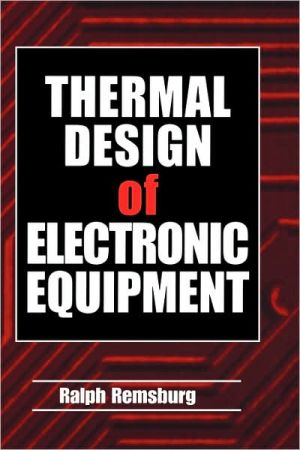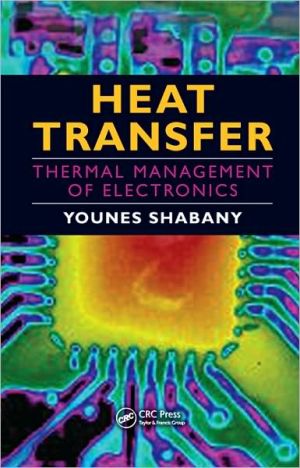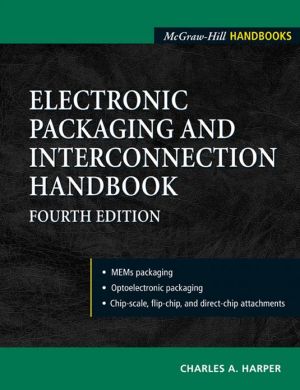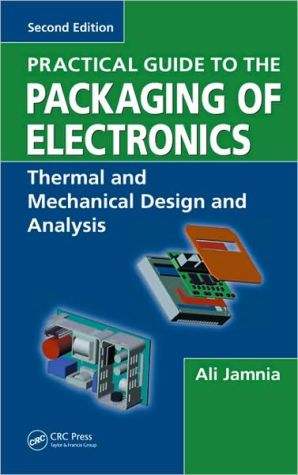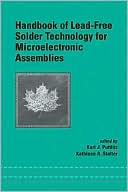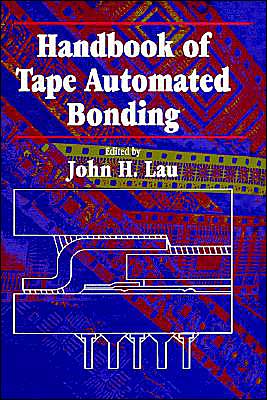Thermal Design of Electronic Equipment
In a field where change and growth is inevitable, new electronic packaging problems continually arise. Smaller, more powerful devices are prone to overheating, causing intermittent system failures, corrupted signals, lower MTBF, and outright system failure. Since convection cooling is the heat transfer path most engineers take to deal with thermal problems, it is appropriate to gain as much understanding about the underlying mechanisms of fluid motion as possible.\ Thermal Design of...
Search in google:
In a field where change and growth is inevitable, new electronic packaging problems continually arise. Smaller, more powerful devices are prone to overheating, causing intermittent system failures, corrupted signals, lower MTBF, and outright system failure. Since convection cooling is the heat transfer path most engineers take to deal with thermal problems, it is appropriate to gain as much understanding about the underlying mechanisms of fluid motion as possible. Thermal Design of Electronic Equipment is the only book that specifically targets the formulas used by electronic packaging and thermal engineers. It presents heat transfer equations dealing with polyalphaolephin (PAO), silicone oils, perfluorocarbons, and silicate ester-based liquids. Instead of relying on theoretical expressions and text explanations, the author presents empirical formulas and practical techniques that allow you to quickly solve nearly any thermal engineering problem in electronic packaging. Booknews Provides formulas needed by electronic packaging engineers to solve thermal engineering problems and prevent overheating in electronic equipment. Chapters cover formulas for conductive heat transfer, fluid dynamics, convection heat transfer, radiation heat transfer, and heat transfer with phase change. The book approaches convective heat transfer in electronics as a fluids problem, rather than a series of differential equations, and requires only a knowledge of algebra. Annotation c. Book News, Inc., Portland, OR (booknews.com)
Preface Nomenclature and Symbology Unit Conversion Factors Introduction to Formulas for Thermal Design of Electronic Equipment Introduction to the Modes of Heat Transfer in Electronic Equipment Theoretical Power Dissipation in Electronic Components Thermal Engineering Software for Personal Computers Formulas for Conduction Heat Transfer in Electronic Equipment Thermal Conductivity Conduction - Steady State Conduction - Transient Boundary Conditions Conduction in Extended Surfaces Thermal Contact Resistance in Electronic Equipment Interfaces Discrete Heat Sources and Thermal Spreading Formulas for Fluid Dynamics for Electronic Equipment Hydrodynamic Properties of Fluids Fluid Statics Fluid Dynamics Incompressible Ideal Fluid Flow Incompressible Real Fluid Flow Loss Coefficients and Dynamic Drag Fans and Pumps Electronic Chassis Flow Convection Heat Transfer in Electronic Equipment Fluid Properties Boundary Layer Theory Dimensionless Groups Forced Convection Natural Convection Radiation Heat Transfer in Electronic Equipment Radiation Equations Surface Characteristics View Factors Environmental Effects Heat Transfer with Phase Change Dimensionless Parameters in Boiling and Condensation Modes of Boiling Liquids Evaporation Condensation Melting and Freezing Combined Modes of Heat Transfer for Electronic Equipment Conduction in Series and Parallel Conduction and Convection in Series Radiation and Convection in Parallel Overall Heat Transfer Coefficient Appendix: Thermophysical Properties of Materials NOTE: References at the end of Chapters 1-6; Introduction at the beginning of Chapters 2-7
\ BooknewsProvides formulas needed by electronic packaging engineers to solve thermal engineering problems and prevent overheating in electronic equipment. Chapters cover formulas for conductive heat transfer, fluid dynamics, convection heat transfer, radiation heat transfer, and heat transfer with phase change. The book approaches convective heat transfer in electronics as a fluids problem, rather than a series of differential equations, and requires only a knowledge of algebra. Annotation c. Book News, Inc., Portland, OR (booknews.com)\ \
